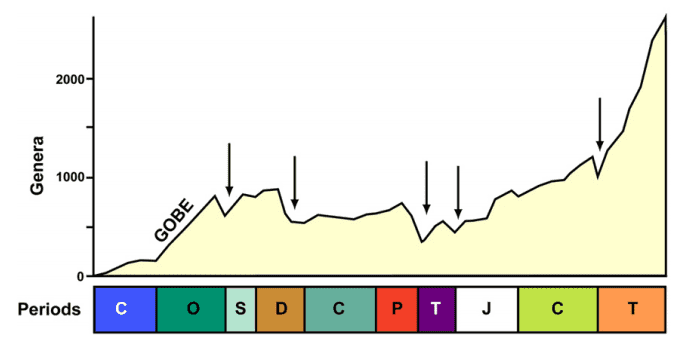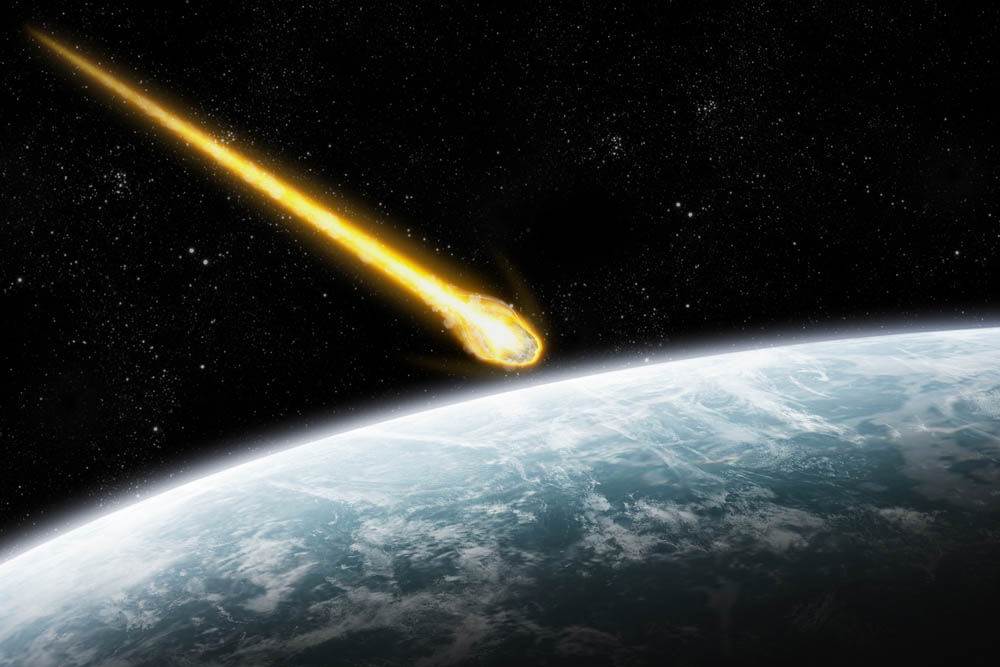A study has debunked meteorite seeding theory for ancient marine life boom
A recently published study concludes that an explosion in marine life 471 million years ago did not originate from meteorites bombarding the Earth, as had been previously hypothesized. The ancient event, known as the Great Ordovician Biodiversification Event (GOBE), led to a massive increase in ocean life, and occurred some 70 million years after the first explosion of life on Earth during the Cambrian period (540 million years ago).
A leading theory among scientists is that collisions in our asteroid belt led to Earth being bombarded by space rocks that seeded the explosion of life. The rocks may have carried microbes, or simply changed the environment just enough to promote life to grow and diversify at an increased rate.
While such a bombardment did occur, researchers from Sweden and Denmark have now shown that the growth began 2 million years before the bombardment, and so, the two events must be unrelated. The researchers reached their conclusion by dating crystals from meteorite-bearing sediments in Sweden. “There is no measurable ‘extraterrestrial’ influence on biodiversity” says study co-author Anders Lindskog of Lund University.

Diversity of life on Earth
The question of what caused the GOBE remains open. There are many theories circulating, and indeed, the truth may not come down to any one thing. Lindskog believes the event likely resulted from a combination of events and processes. “It is reasonable that the very high sea levels that prevailed during the Ordovician… simply gave more space for life to thrive,” he said, “Combined with the presence of many small continents (allowing for more endemic faunas, adding to the sum of different species) and beneficial climate change (cooling, most likely), we have a pretty nice ‘recipe’ for biodiversification.”
Another question of course, is how life began on our planet in the first place. While space rocks may not have been responsible for the Great Ordovician Biodiversification Event, an increasingly popular theory for how life began in the first place is very similar. ‘Panspermia’ is the theory that asteroids from well beyond our solar system carried microbes which remained in hibernation until they impacted Earth. The microbes would then have thawed out and started to grow.
Source: Nature Communications







